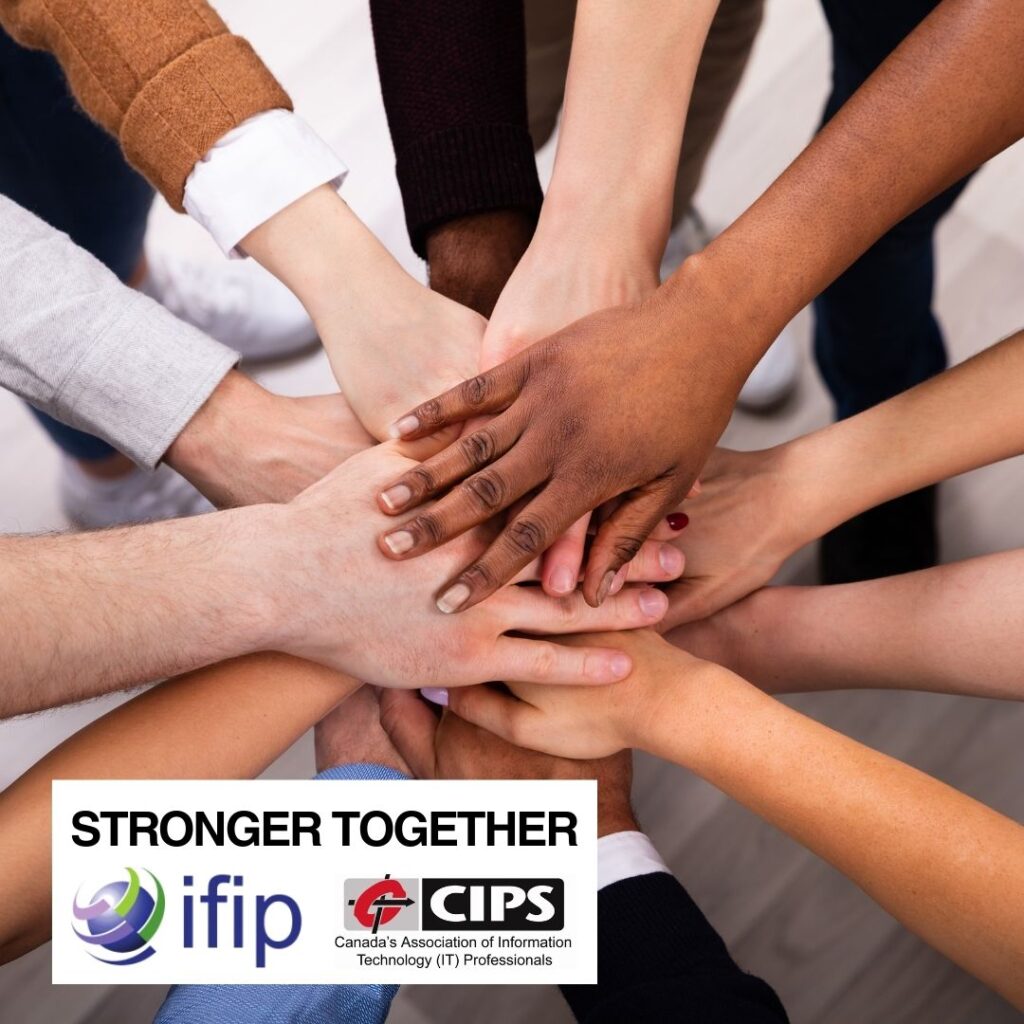IFIP Blog Article: IT-professionals and climate
By: Wouter Bronsgeest,
President , KNVI (Royal Dutch Association of Information Professionals)

In late March 2024 at one of the conference rooms at the Toronto Sheraton hotel IFIP (International Federation for Information Processing) representatives from around the world and hosts CIPS (Canadian Information Processing Society) sat together discussing the relationship between IT and climate. The developments Stephen Ibaraki outlined still resonate a little in the room. Artificial Intelligence (AI) can already help select and detect the best (new) materials for new batteries. AI recently ‘invented’ a new material for batteries with 70% more efficiency in energy storage than current battery materials. Or Quantum….what we can’t quite imagine is that a new generation of a quantum computer – which is already being worked on – will be as much as a trillion times better than its predecessor. ‘Moore’s Law’ can’t compete with that.
Or the developments Professor Philip Wong is working on: Chips in your cells, allowing you to not only talk to your own cells, but also direct and improve them. And, of course, also solve diseases at the cellular level. No surgeon can beat that. It’s starting to get close to what futurologists give us in vistas for the ‘future’. That future is already here. Although you don’t yet see it in everyday life around you. When will it be? These are some of the conversations had in Toronto.
Indeed, aside from all these vistas, we wrestle with the dilemma that IT is both the problem and the solution to many of the problems on our globe. The energy required for a Language Model computation like Chat GTP is huge. The more you use these tools, the bigger your ‘footprint’. And no, wind turbines are not going to solve that. Indeed, the effects of humans on our climate got extra attention in Toronto because the scientists also grabbed the Clintel report- a study on the impact of humans on climate. And because the meeting also explored what Society 4.0 and ‘Glocalisation’ of the world can contribute to a better world. The intention of the meeting was clear – IT professionals are making an important contribution to solving many of the current issues around climate. Better models, better data and innovations are needed. And also: continue to meet in the real world, to talk, discuss and inspire each other. No IT solution can compete with that (yet).

